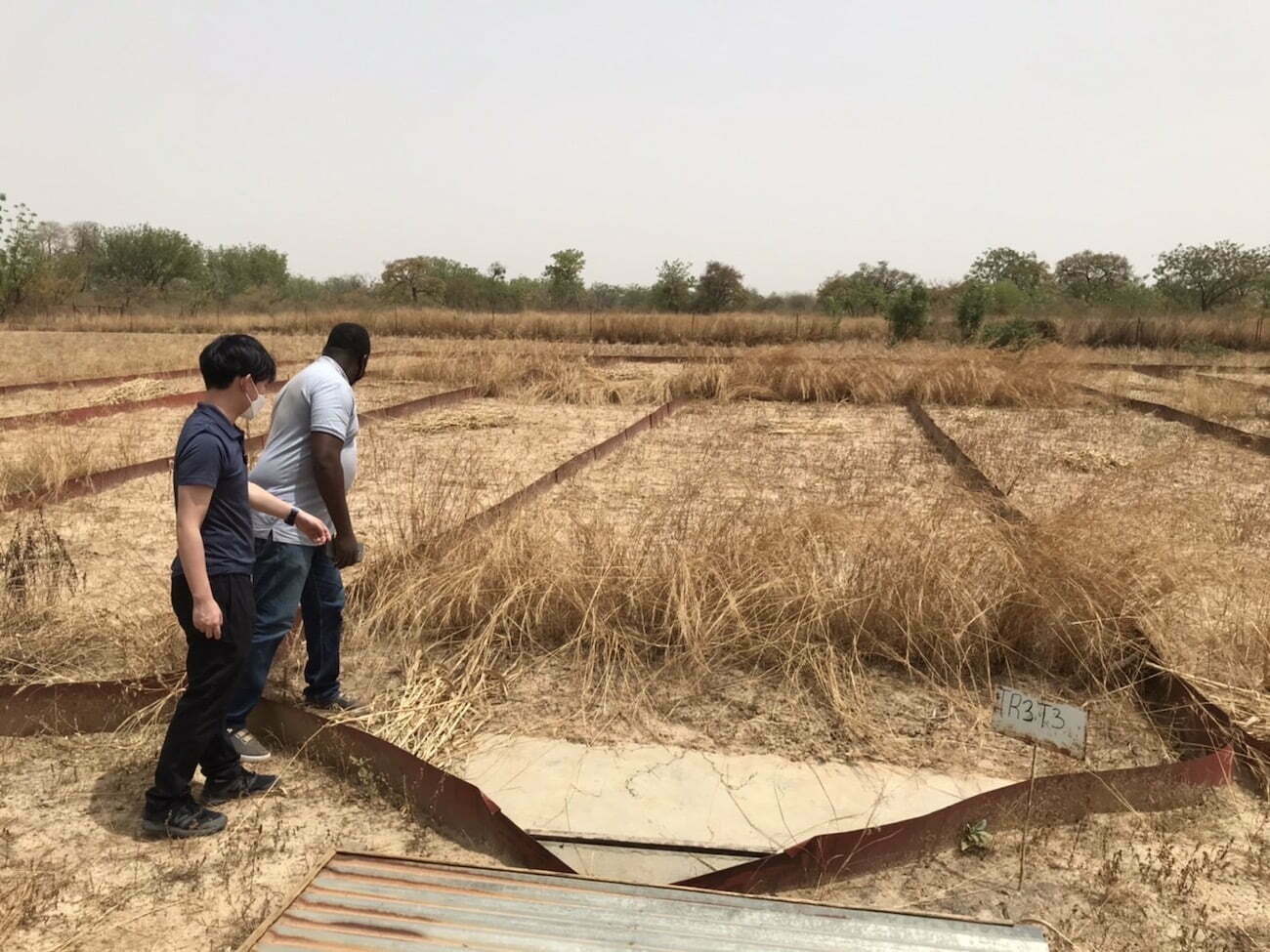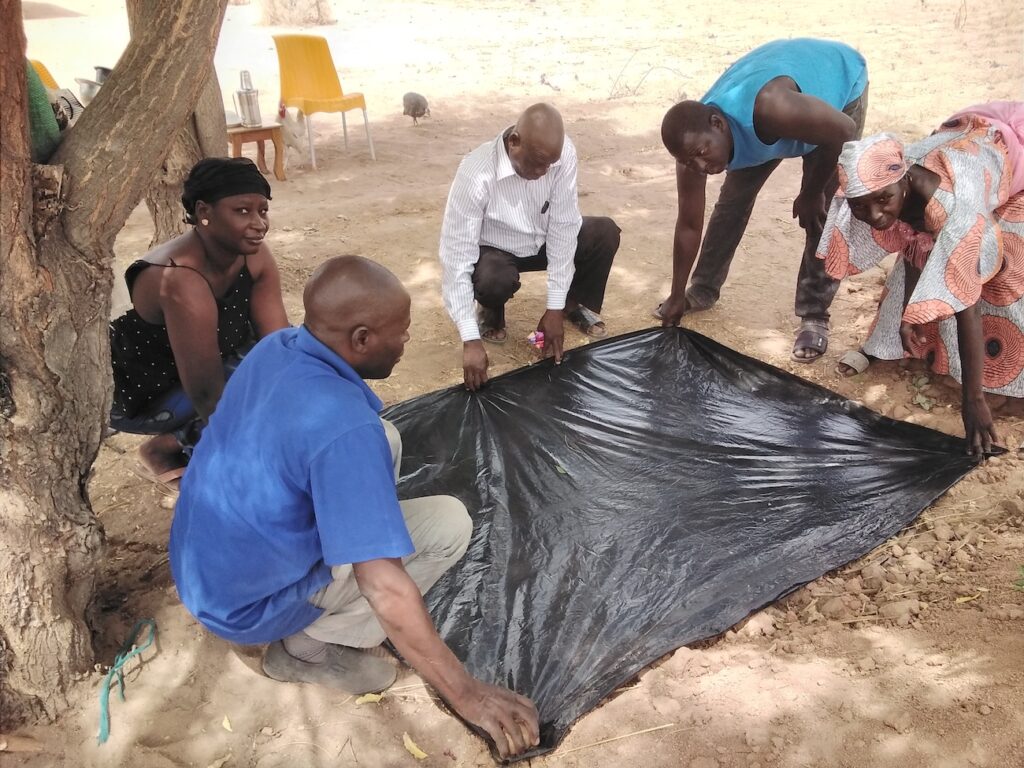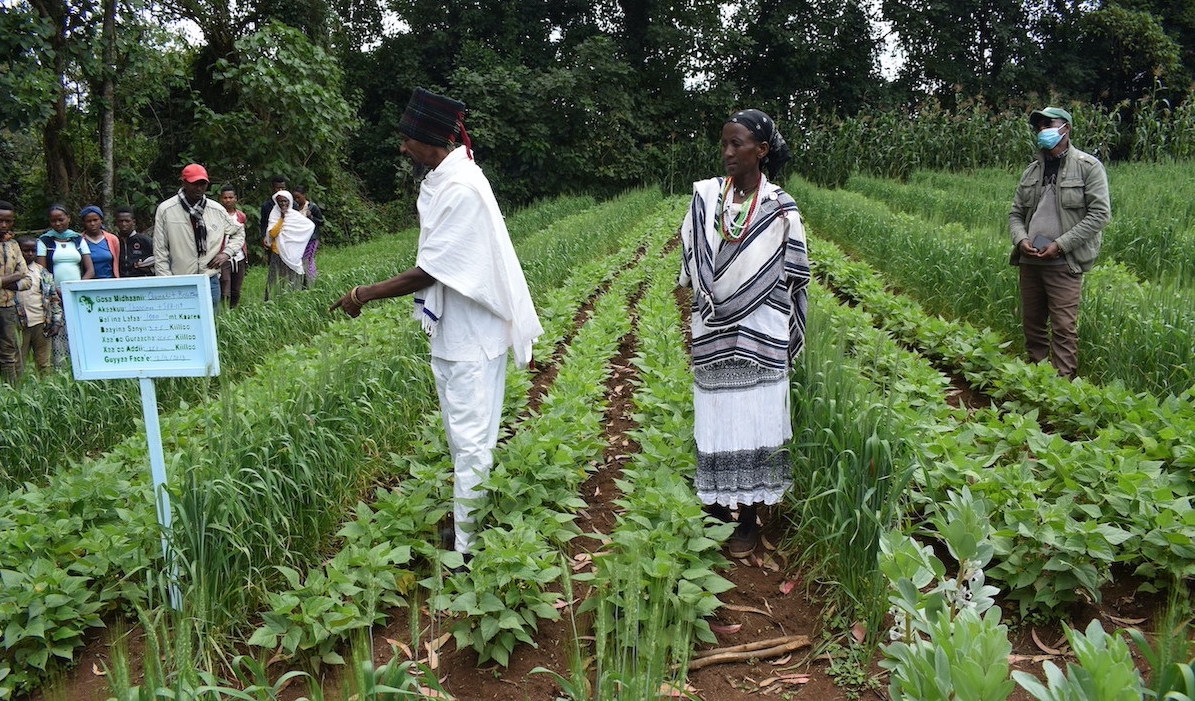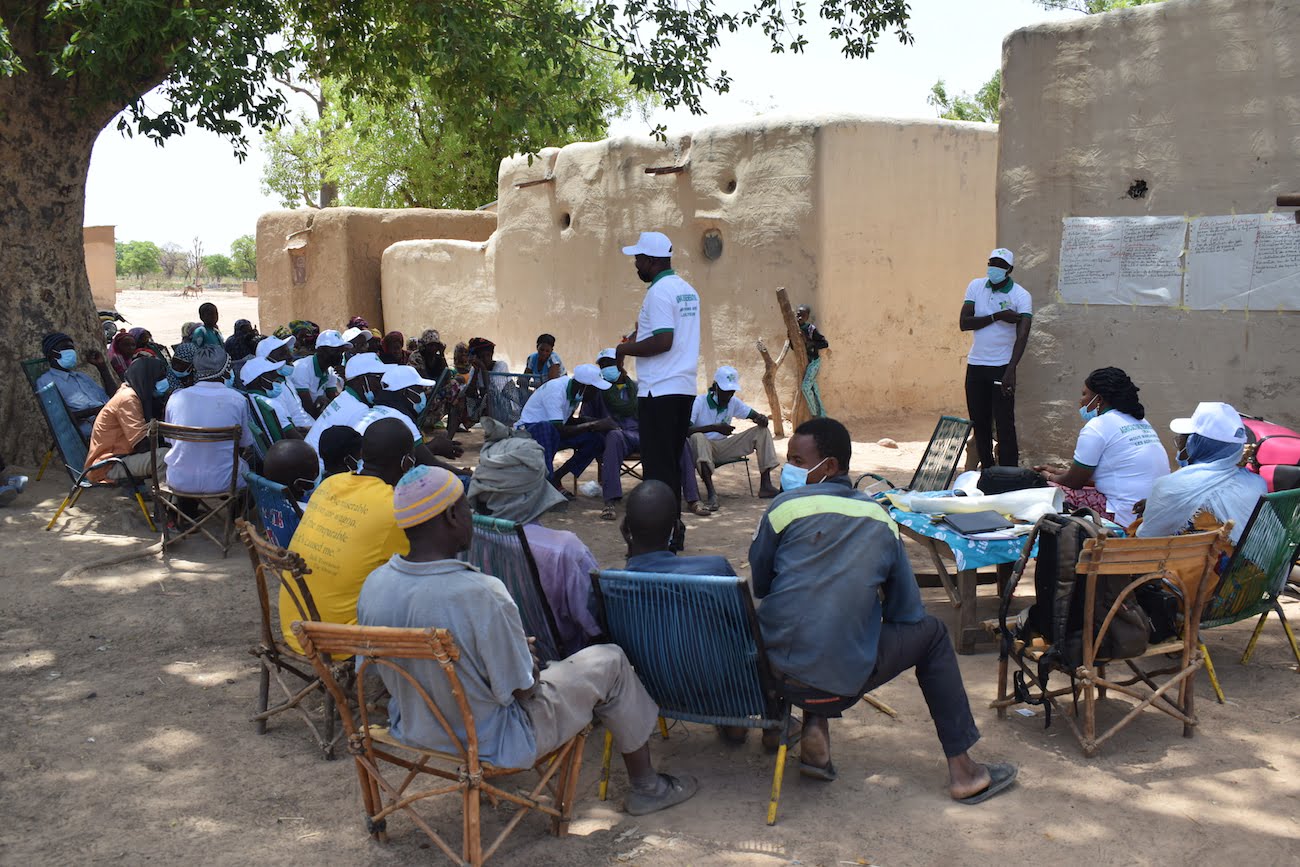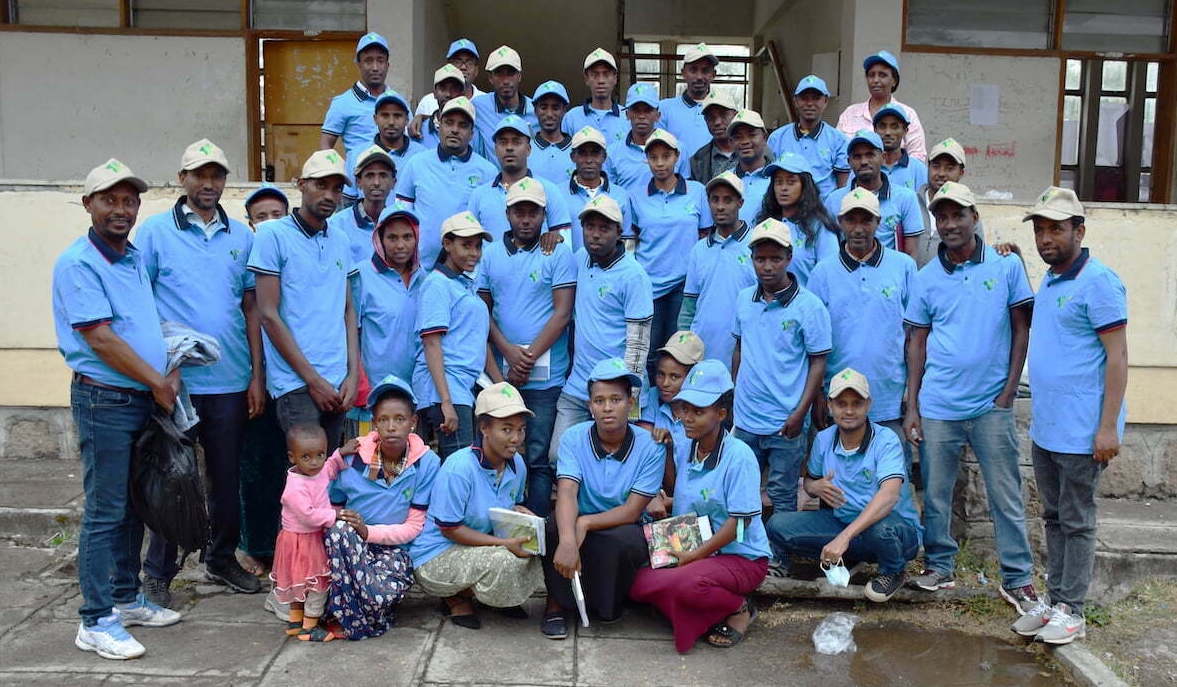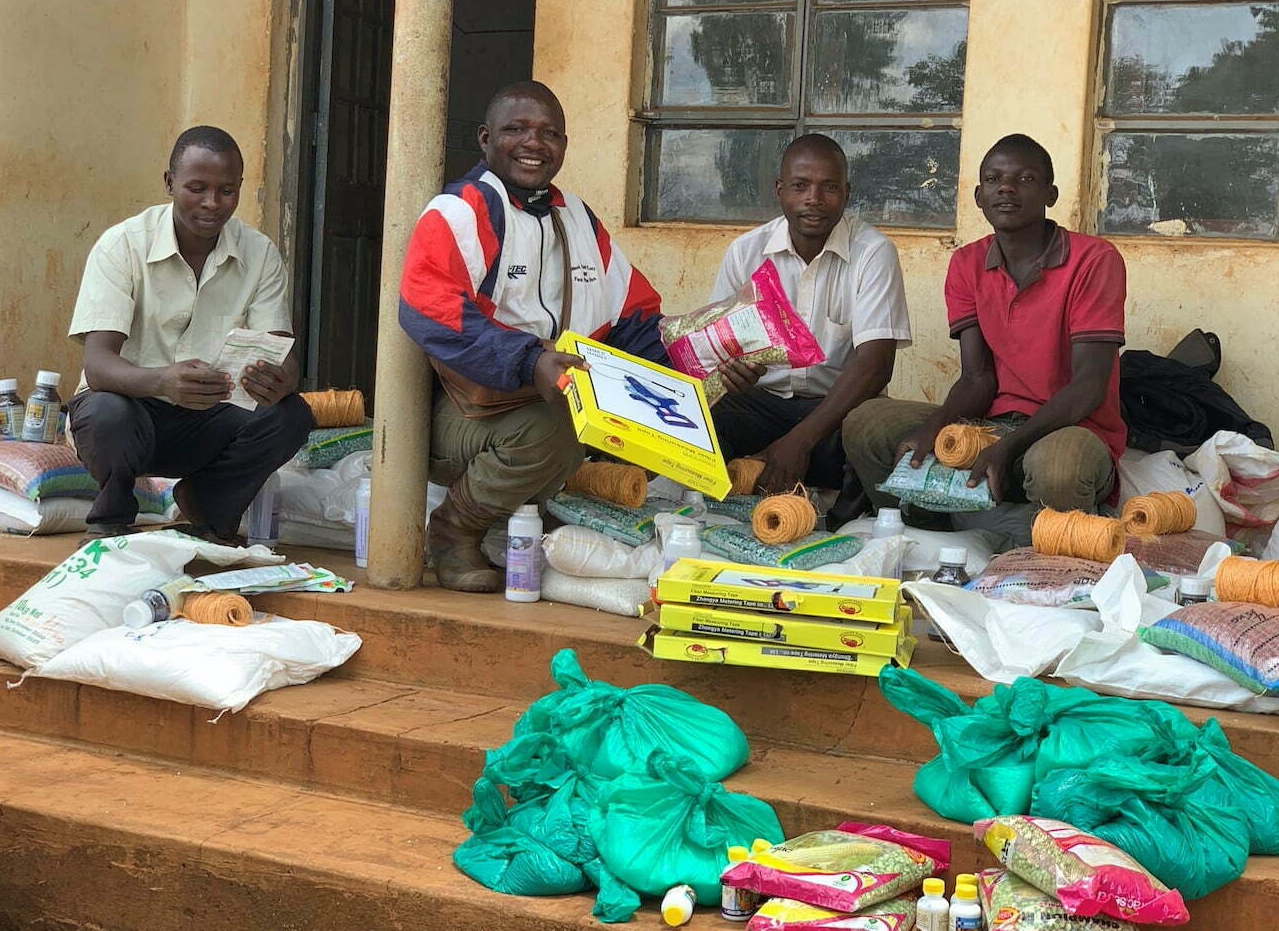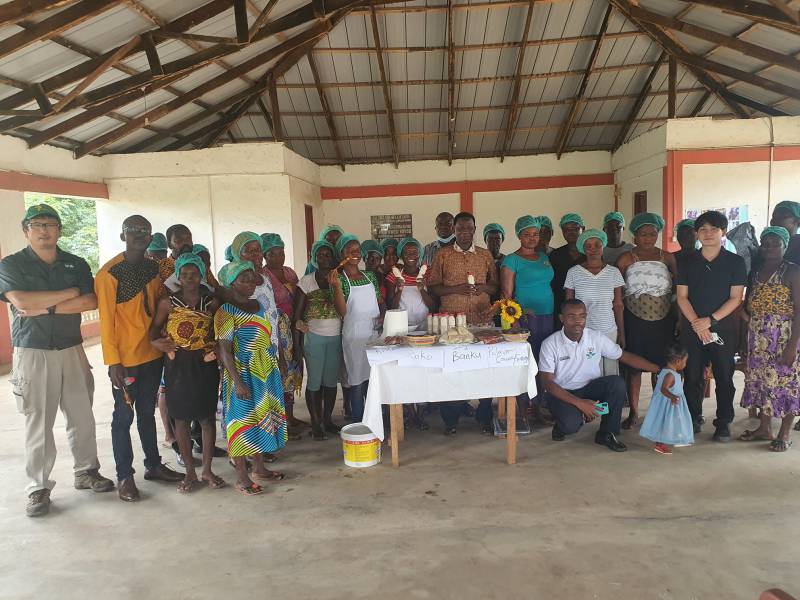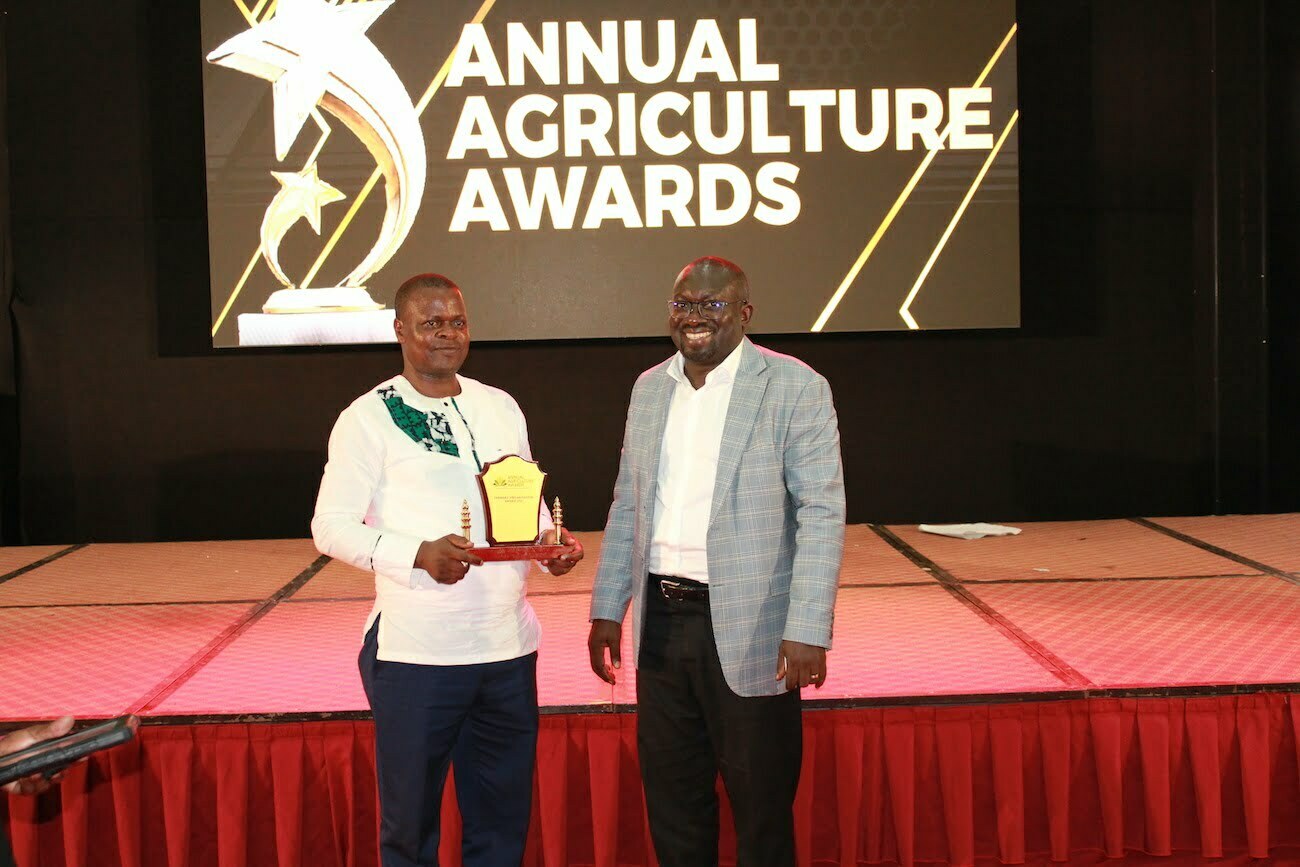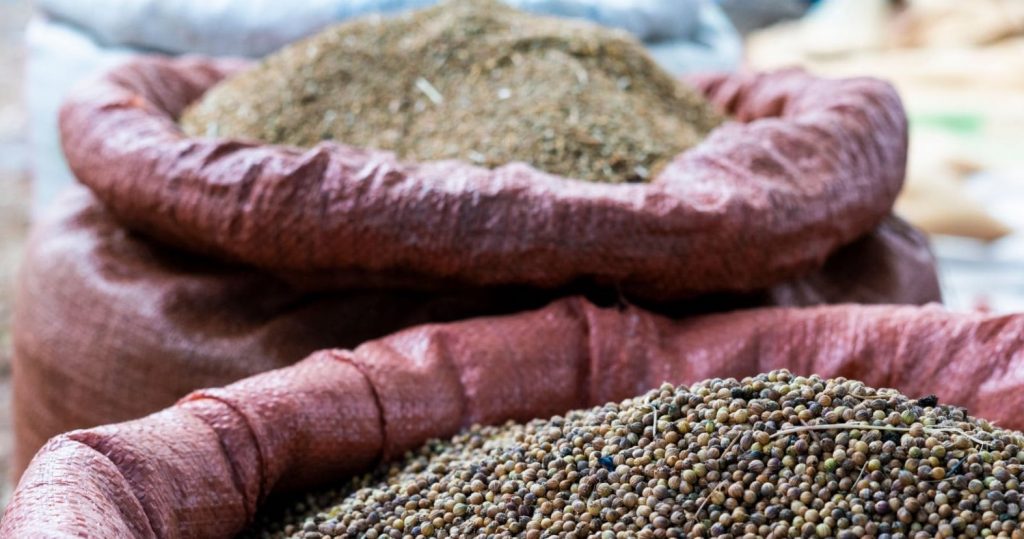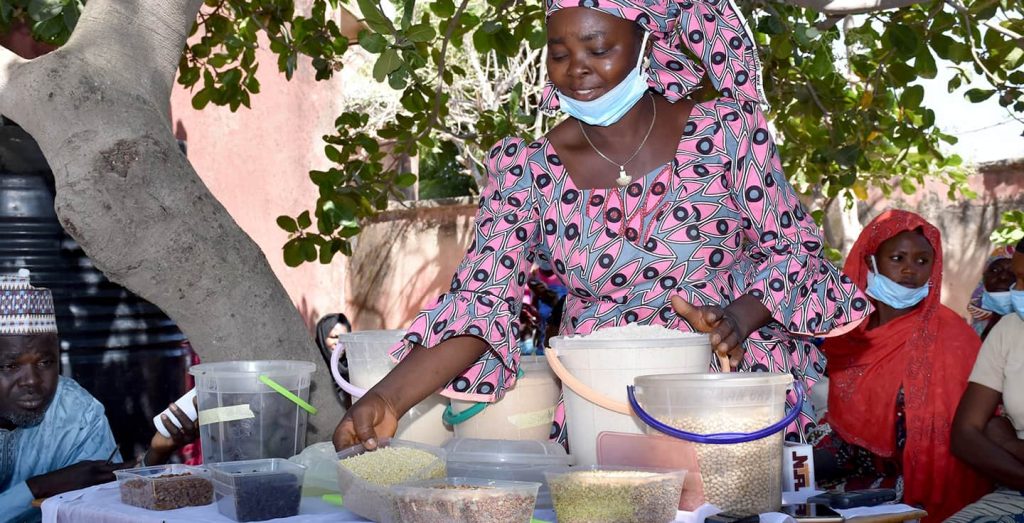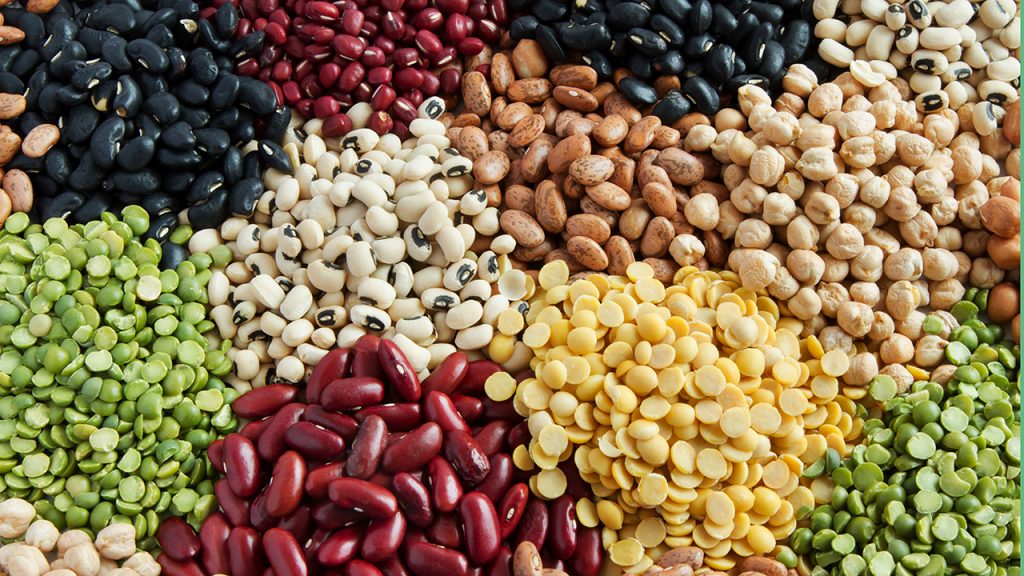Focus on Regenerative Agriculture
June 2022
Featured Message
Featured Message
Message from the President
Dear SAA friends and partners,
Half-way to the year 2022, presents a good moment for us to share our experience in the promotion of sustainable agriculture, with a special focus on regenerative agriculture (RA), our priority strategic pillar.
RA is getting lots of attention these days especially in the US and Europe as a means to recover and improve soil health and as a result mitigate climate change. RA seeks to recover soil health by activating soil microorganisms with organic matter and sequestering carbon dioxide, so as to improve the physical structure of soils, increase water retention capacity, and reduce soil erosion and topsoil run-off. On the other hand, it is important to note that we cannot just import the RA concepts developed in capital-intensive agricultural systems elsewhere to Africa, as factors surrounding agriculture in Africa are peculiar. Compared to US, for example, the average farm size of African smallholder farmers is generally much smaller, the amount of fertilizer used per hectare is less than one tenth, and the level of soil degradation is much more serious. Moreover, the access to irrigation is limited and there are less plant residues available for mulching as they are used for cooking fuel and animal feed.
Nonetheless, SAA, under RA strategic pillar, aims to establish a resilient and sustainable food system in Sub-Saharan Africa by combining Conservation Agriculture practices such as minimum tillage, mulching, crop rotation and intercropping and Integrated Soil Fertility Management. Under the new slogan of “walking with the farmer” we’re committed to establish an approach suited to the needs of African smallholder farmers that restores soil health and improves agricultural productivity while enhancing the smallholder farmers’ adaptation to climate change and reducing greenhouse gas emission from agricultural land, ultimately helping to mitigate the impact of climate change. We remain a valued actor in the promotion of agricultural transformation in Africa. Our journey has just started, but we truly hope we can make it with our partners and African farmers.
Thank you and I hope you find this newsletter an informative read.
Sincerely,
Dr. Makoto Kitanaka,
President, Sasakawa Africa Association
Special Feature
Special Feature
SAA team learns regenerative agriculture tips during Burkina Faso, Ghana trip
In March 2022, the SAA team traveled to Burkina Faso and Ghana to explore different regenerative agriculture techniques for the promotion of sustainable agriculture production.
In Burkina Faso, the team visited a plant spearheading the local production of phosphate fertilizers. With the support of Japanese experts at the Japan International Cooperation Agency (JICA) and the researchers at Japan International Research Center for Agricultural Sciences (JIRCAS), the enterprise aims at promoting import substitution of mineral fertilizer with locally-produced organic fertilizers – one of regenerative agriculture drivers.
During the visit, the team was also introduced to the JIRCAS’ Research Fallow Band system, which uses five-meter fallow strips at 30-60-meter intervals on arable land to prevent wind erosion and increase nutrient accumulation in the soil, with little or no external fertilization. The technique was developed to help reduce the spread of desertification in the Sahel region of western Africa, which is inextricably linked to wind erosion.
The team later visited Sony’s synecoculture project at the Centre African de Recherche et de Formation en Synécoculture (CARFS). Synecoculture is a technique for the creation of artificial ecosystems by cultivating a high-density mixture of edible plants without the application of tillage, fertilizer, and chemicals. CARFS’s ambition aligns with SAA’s regenerative agriculture principles by mimicking natural processes and creating biodiverse gardens that have various species to serve the different food, medicine, and pest control needs.
In Ghana, the team visited the Center for No-Till Agriculture (CNTA) in Kumasi Region, where the three Conservation Agriculture (CA) principles (reduced soil disturbance, soil covering, and crop diversification through intercropping and crop rotation) were exemplified. The center focuses on developing different techniques for Integrated Pest Management (IPM), Integrated Soil Fertility Management (ISFM), and Integrated Crop Management (ICM).
Voices from the field
Voices from the field
Regenerative agriculture training changes the fortunes of farmers in Nigeria
Farmers in northern Nigeria are reporting positive changes in their yields after embracing regenerative agriculture techniques like crop rotation and the application of manure.
Iliya Adamu from Antawalam Community in Gombe State and Alhaji Yahaya Abubakar from Keffi in the Nasarawa State were both experiencing dwindling harvests as a result of conventional farming practices, including cultivation of the same crop (mainly cereals) every year, clearing their farms off all crop residues, and applying insufficient organic additives.
A turnaround came when they participated in SAA’s training on regenerative agriculture, where they learnt techniques for soil nutrients replenishing, such as cereal/legume intercropping, and compost manure usage.
“The era of complaints on the high cost of fertilizers will soon become a past history since we can produce organic fertilizer to complement chemical fertilizers using the local materials at our disposal,” said Adamu.
Abubakar further lauded the impact of the SAA initiative to his community, noting that the introduction of the maize/soybean intercropping techniques has saved him and other farmers from constant expenditures on fertilizers and other agrochemicals.
“I have been a maize farmer for long, and I have been facing difficulties in buying chemical fertilizers every year. Learning and adopting SAA’s maize/soybean intercrop system, I have seen a reduction in chemical fertilizer use. I now have big-sized cobs on my maize – it is amazing!” he exclaimed.
Voices from the field
Voices from the field
Training on soil improvement empowers Ethiopian farmers
In 2019, two farmers, brothers Debeso Sorra (57) and Gemeda Sorra (47), from Ethiopia’s Raya-Boda Kebele of the Ana Sora district in the Oromia region offered their land for the establishment of SAA’s Community Demonstration Plots (CDPs).
The CDPs are sought to promote soil improvement technologies to farmers in the region. The training covered reduced tillage, line planting, use of high yielding improved seeds (cereals and pulses), application of recommended rates of inputs, Integrated Soil Fertility Management, and Integrated Pest Management.
By 2021, Gemeda, Debeso and other farmers in Raya-Boda had gained skills that continue to transform their agricultural production.
“Sasakawa woke us from our deep sleep and opened our eyes and minds to improved agricultural technologies and practices,” Debeso said during a field visit.
Explaining the benefit the training brought to them, Gemeda said
“We were ploughing vast farmlands, but our livelihood did not improve because we did not apply good agricultural practices and were not able to improve our productivity. We thank Sasakawa for the knowledge and skills they gave us”.
He further urged farmers who participated in the programme to fully implement the skills they learnt on their farms for a transformation of their agricultural enterprise.
“Participating in the field days and looking at demonstrations is not enough. Apply what you learned on your field and change your life”.
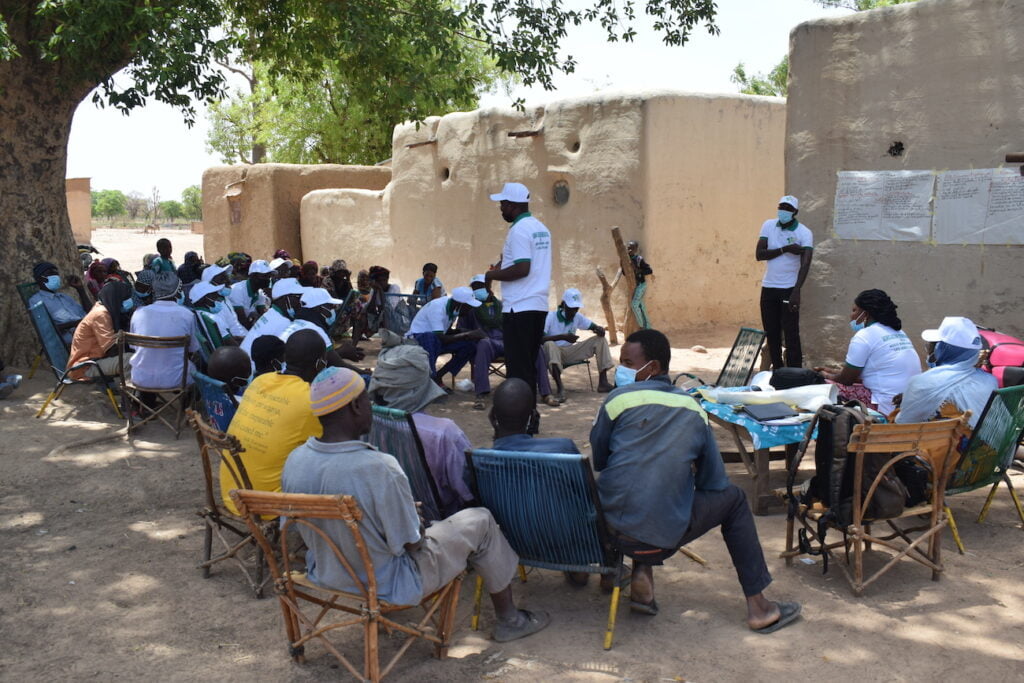
Activities
Activities
Malian farmers trained on compost production
As part of its regenerative agriculture initiatives, SAA trained 10 extension staff and 55 (25 women) farmers in the Koulikoro region of western Mali on compost production using locally available materials.
The training was conducted at the Monzomblena Production Postharvest and Trading Center (PHTC) on April 22, 2022. The training consisted of both theoretical and practical demonstrations. The participants learnt that the intensive use of compost can significantly reduce the use of chemical fertilizer, hence reducing their production costs.
Further training is planned to demonstrate other soil conservation techniques like stone bunds, minimum tillage, and crop rotation, among others.
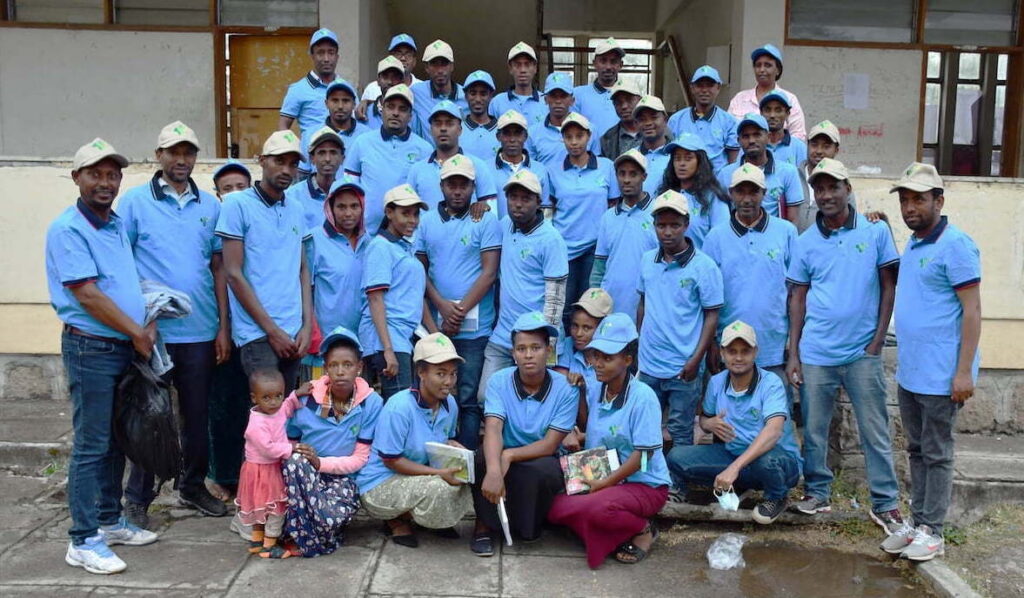
Activities
Activities
Ethiopian farmers gain new skills through training in regenerative agriculture
SAA conducted training on regenerative agriculture, nutrition-sensitive agriculture and agriculture-extension. The training was attended by 111 (86 women) participants from five districts.
The training covered topics around sustainable and regenerative agriculture, integrated soil fertility management, climate smart agriculture, crop diversification, conservation agriculture and its main pillars, seed priming technology, agricultural extension and advisory services, effective communication, nutrition sensitive agriculture, postharvest and storage technologies, market-oriented agriculture and e-extension concepts.
The participants were especially informed on the importance of maintaining soil organic matter and improving soil health through alternative farming techniques.
Frequent tillage, it was shown, exposes the soil to erosion by wind and water, and decomposition of soil organic matter and thus its depletion, as well as increases the release of greenhouse gas emissions from the soil, exacerbating climate change.
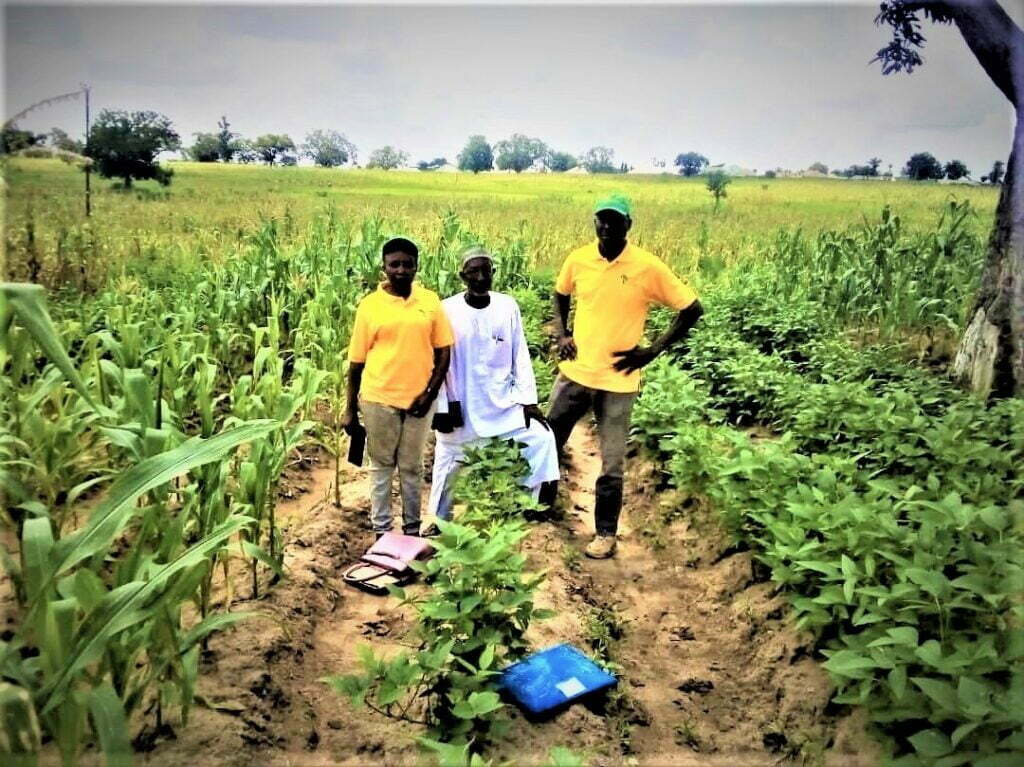
Activities
Activities
SAA continues promoting Regenerative agriculture in Nigeria
Going into six months within the year 2022, SAA-Nigeria is actively working to establish 429 regenerative agriculture (RA) demonstration plots to showcase the techniques for sustainable soil improvement, including intercropping, crop rotation, crop diversification, compost preparation and usage, and zero/minimum tillage. These activities are envisaged to sustainably improve soil productivity.
These plans draw from the success of 2021, when 116 RA plots were established, alongside climate smart villages in the Jigawa State. The demonstration plots showcased climate adaptation and mitigation practices, including the use of the urea super granule, production and use of compost, mixed farming, irrigated horticultural crops, and cultivation of early maturing varieties.
A total of 115 extension agents and community-based facilitators (22 women) were trained on sustainable intensification including Conservation Agriculture and Integrated Soil Fertility Management practices. The trainees cascaded what they learnt to 11,500 farmers, across 460 communities, emphasizing improvement on: soil permeability and aeration, water and fertilizer retention, ecosystem biodiversity and other practices that increase the organic matter content of the soil.
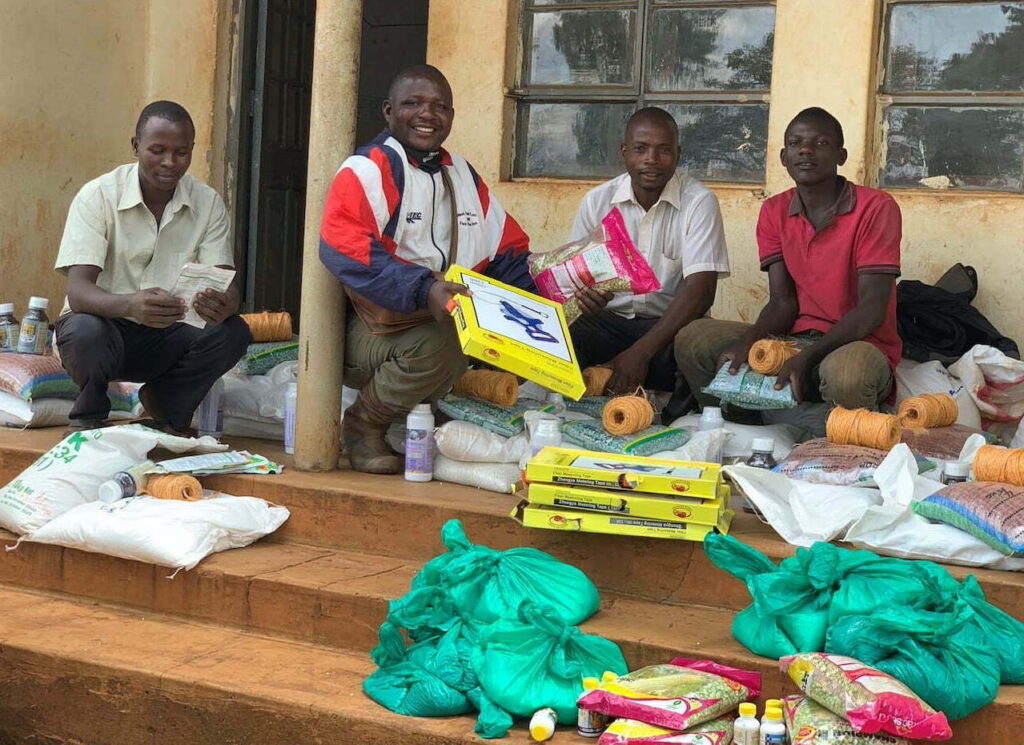
Activities
Activities
Timely distribution of inputs helped early planting in Uganda
In the first production season of 2022, SAA-Uganda was at hand to conduct field demonstrations and support input distribution to farmers in the East African country.
As part of the program, farmer learning platforms (FLPs) were established to stimulate farmer education, transfer and disseminate crop production technologies and practices to underserved smallholder communities. The FLPs prioritized Community Demonstration Plots (CDP), seed multiplication and seed priming in Climate Smart Villages (CSV), all being part of SAA’s regenerative agriculture campaign.
Equipment like spray pumps, measuring ropes, tape measures and gumboots were also distributed to district coordinators and extension agents in Kole, Otuke, Oyam, Nakaseke, Mubende and Kiboga districts. Additionally, five kits (covering 1 acre each) of seed (Champion F1), Urea, DAP and pesticide were disseminated.
The project demonstrated that the timely availability of input distribution enables early planting under conducive weather.
EVENTS
Events
SAA visits Cape Coast University
The SAA HQ team visited the Cape Coast University in Ghana from March 15 – 16, where they interacted with staff, students and neighboring farming communities.
It was exciting to see all the different infrastructure named after Sasakawa, including the Sasakawa Road, Sasakawa Centre, Sasakawa Restaurant, Sasakawa Chalet and the Sasakawa Guest House. This honor confirmed Sasakawa’s enduring legacy and impact in Ghana.
The Sasakawa Africa Fund for Extension (SAFE) was first launched at the University of Cape Coast in 1993, targeting mid-career Bachelor of Science in agricultural extension trainees.
More than 600 extension personnel have graduated from the programme and are now employed by Ghana’s Ministry of Food and Agriculture.
For the full story, click here
Events
SAA visits Cape Coast University
The SAA HQ team visited the Cape Coast University in Ghana from March 15 – 16, where they interacted with staff, students and neighboring farming communities.
It was exciting to see all the different infrastructure named after Sasakawa, including the Sasakawa Road, Sasakawa Centre, Sasakawa Restaurant, Sasakawa Chalet and the Sasakawa Guest House. This honor confirmed Sasakawa’s enduring legacy and impact in Ghana.
The Sasakawa Africa Fund for Extension (SAFE) was first launched at the University of Cape Coast in 1993, targeting mid-career Bachelor of Science in agricultural extension trainees.
More than 600 extension personnel have graduated from the programme and are now employed by Ghana’s Ministry of Food and Agriculture.
For the full story, click here
Events
Farmers in Ethiopia trained on entrepreneurship
In February, SAA organized a four-day training on agri-entrepreneurship in the central Oromia Region of Ethiopia. The training sought to improve the entrepreneurial skill of farmer groups, with a special focus on youth.
A total of 60 (18 women) farmers from three districts – Ana Sora, Negele Arsi and Angacha – attended the training, which covered different business development and management skills like market surveys, business plan development and profitability analysis.
Having seen how they could run their farming enterprises as profitable businesses, the participating groups noted the need for project diversification with some venturing out to fruit production and expansion of seed multiplication initiatives for maximized income.
Events
Farmers in Ethiopia trained on entrepreneurship
In February, SAA organized a four-day training on agri-entrepreneurship in the central Oromia Region of Ethiopia. The training sought to improve the entrepreneurial skill of farmer groups, with a special focus on youth.
A total of 60 (18 women) farmers from three districts – Ana Sora, Negele Arsi and Angacha – attended the training, which covered different business development and management skills like market surveys, business plan development and profitability analysis.
Having seen how they could run their farming enterprises as profitable businesses, the participating groups noted the need for project diversification with some venturing out to fruit production and expansion of seed multiplication initiatives for maximized income.
Events
SAA recognized at Uganda’s Annual Agricultural Awards
SAA-Uganda won the 2021 Agri-partners Recognition Award at Uganda’s Annual Agricultural Awards held on April 20, 2022 in the country’s capital, Kampala, under the theme: “Agriculture, Business and Innovation for Development.”
The awards aim at recognizing, rewarding and motivating outstanding individuals and organizations that have enhanced the value of agriculture through innovation.
SAA Uganda’s Deputy Country Director, Joseph Bemba dedicated the award to the country’s Ministry of Agriculture, Animal Industry and Fisheries, the Nippon Foundation, value chain actors, development partners, smallholder farmers and the team at SAA.
“We commit to continue walking with farmers in Uganda and the rest of Africa,” he said.
SAA’s Chief Commodity Association Trader and a champion for the One-Stop Center Association (OSCA), Godfrey Mayambala, received the Best Farmer Organization award on behalf of Zirobwe Agaali awaamu Business Training Association (ZAABTA). The ZAABTA is one of the most successful OSCAs that were established and are supported by SAA.
Events
SAA recognized at Uganda’s Annual Agricultural Awards
SAA-Uganda won the 2021 Agri-partners Recognition Award at Uganda’s Annual Agricultural Awards held on April 20, 2022 in the country’s capital, Kampala, under the theme: “Agriculture, Business and Innovation for Development.”
The awards aim at recognizing, rewarding and motivating outstanding individuals and organizations that have enhanced the value of agriculture through innovation.
SAA Uganda’s Deputy Country Director, Joseph Bemba dedicated the award to the country’s Ministry of Agriculture, Animal Industry and Fisheries, the Nippon Foundation, value chain actors, development partners, smallholder farmers and the team at SAA.
“We commit to continue walking with farmers in Uganda and the rest of Africa,” he said.
SAA’s Chief Commodity Association Trader and a champion for the One-Stop Center Association (OSCA), Godfrey Mayambala, received the Best Farmer Organization award on behalf of Zirobwe Agaali awaamu Business Training Association (ZAABTA). The ZAABTA is one of the most successful OSCAs that were established and are supported by SAA.




